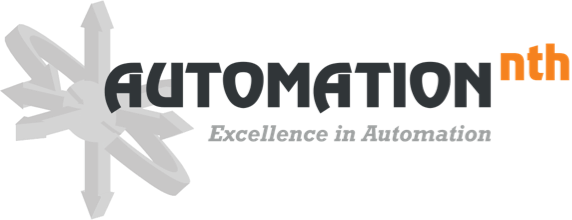How Custom Automation Can Improve Quality, Increase Efficiency, and Reduce Risk in Your Operations
Technological advancements have improved quality and efficiency across industries, but automation in manufacturing has transformed how companies can manufacture their products. Automation equipment is a substantial investment, but the benefits of manufacturing automation are significant. Benefits include improvements in product quality, advanced production efficiency, and overall risk reduction.
Automation Improves Quality
Automation improves quality by providing consistent, accurate, and uniform results to complex tasks. Specifically, quality improvements due to manufacturing automation include the following.
Consistent Results
One of the benefits of automated machinery is that they can run the same program over and over, creating precise and uniform results. This technology eliminates inevitable human error and can constantly create accurate results when building complex products. This also guarantees that every product will consistently meet company standards, and that customers will always receive the same high-quality product.
Completion of Complex Tasks
Manufacturing automation allows companies to incorporate more complicated procedures into their production processes. Some tasks with minuscule details are impossible to accomplish through manual labor. Automation systems can implement these fine-tuned details into products. This attention to detail increases the overall quality of products, and creates impressive details that help products stand apart from the competition.
Automation Enhances Efficiency
Some of the biggest benefits of manufacturing automation are due to improved efficiency. Manufacturing automation can increase how quickly products can be manufactured, which leads to improved productivity. Improvements in efficiency include:
Improved Employee Productivity
One benefit of manufacturing automation is that employees do not have to complete repetitive, mundane tasks. Since these tasks are automated, employees are able to focus their attention on developing new ideas and problem-solving. With manufacturing automation and employees functioning together, repetitive tasks are efficiently completed and new, important ideas are created.
Improved Labor Productivity
Automated systems can work more quickly and for longer hours. Additionally, this means that there is less down time throughout the manufacturing process. This means that a larger number of products can be manufactured in a shorter period of time, thus improving company efficiency.
Reduced Lead Time
Since manufacturing automation decreases the time needed to manufacture products, it also decreases the time needed to fulfill customer orders. With automated systems, the time between when a customer places an order and the company successfully manufactures and delivers the product is reduced.
Improved Quality Control
Because manufacturing automation allows companies to manufacture products accurately, the time necessary for quality control checks is significantly reduced. So, while companies should still run quality checks to ensure that every product meets their quality requirements, extensive and prolonged testing is not required. This decreases the time needed for employees to quality check products and allows companies to optimize their operations.
Accurate Predictive Maintenance Timelines
An additional benefit of manufacturing automation is that companies can follow data-based schedules for predictive maintenance. Predictive maintenance is vital to the manufacturing process, as it reduces downtime caused by mechanical failures and reduces maintenance costs. This maintenance is more difficult to predict with manual manufacturing processes. However, the technology in the automation systems provides accurate updates and maintenance information. This allows companies to develop efficient maintenance schedules, and to prevent mechanical issues before they massively disrupt production.
Automation Reduces Risk for Companies
Unfortunately, there is inherent risk in business, especially for companies that manufacture products. Focusing on risk reduction is a major priority for companies, as reducing risk benefits the company, the company’s employees, and the company’s customers. Risk is reduced through manufacturing automation in numerous ways, including:
Increased Workplace Safety
A major benefit of automation is that automation can replace employees in harmful settings. Manufacturing automation processes fill the need for human labor in situations that previously caused workplace injuries, like environments with extreme temperatures, unsafe chemicals, or dangerous heavy machinery. Another benefit of automation is that it aids companies in meeting the goals of the Occupational Safety and Health Act by making the workplace safer. Custom automation equipment often includes safety features such as motion sensors and mechanical guards that make the workplace even safer than if the automation equipment was not in use.
Avoidance of Product Recalls
Product recalls can massively impact both efficiency of operations and product budgets. However, since manufacturing automation equipment systems produce consistently quality products, the chance of recalls being necessary is reduced.
Faster Return on Investment
The risks that companies assume are closely related to investment costs, such as manufacturing automation equipment. However, a benefit of manufacturing automation is that both labor time and lead times are reduced. This provides companies with the opportunity to generate more sales and revenue, which generates a faster ROI. So, one of the many benefits of manufacturing automation is that the equipment will produce a faster ROI.
Accurate Identification of Errors
One of the promising benefits of manufacturing automation is that equipment finds errors and alerts employees. If the equipment does malfunction, error messages in the equipment facilitate the necessary repairments. This reduces the risk of injury from malfunctioning equipment and reduces unplanned downtime in the manufacturing process.
Finding a Manufacturing Automation Partner
Automation adds significant value to your business by improving the quality of products and efficiency of your manufacturing processes, while simultaneously reducing risk. However, purchasing automation equipment and integrating necessary software can be a significant investment. It is imperative to find a systems integrator and automation partner that works with you to ensure a positive return.
Automationnth, for example, can help you determine whether automation is right for your business and provide strategic guidance that will help you execute projects with less risk and lower cost. We provide custom automation solutions to a number of industries and specialize in software integration. Learn more about the Automationnth difference, and how we help you scale production and achieve greater efficiency and quality measures, contact us today.
